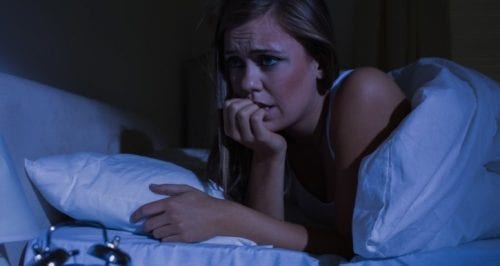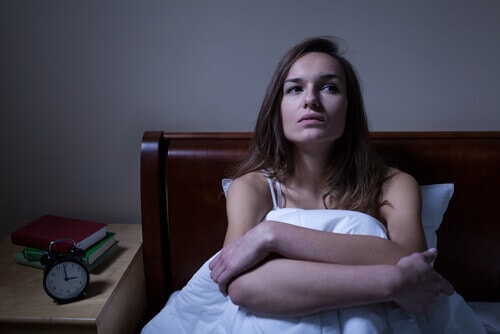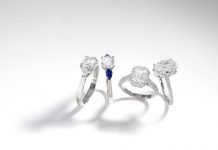The nocturnal panic attack appears unexpectedly in the middle of the night, the person suffering from it experiences a feeling of choking, tachycardia and sweating.
From a clinical point of view, it is very common that it appears in patients suffering from panic attacks during the day.
However, we know that nocturnal panic attack are more intense and painful. In the same way it is important to point out a strange aspect.
10% of people who suffer from anxiety, who are under pressure because of their lifestyle and suffer from a high level of stress, may suffer from a nocturnal panic attack.
Nocturnal panic attack : who is targeted?

We do not talk much about night panic attacks. So much so that they often come in surprise.
When referring to nocturnal panic attack, it is common to imagine a person in fear, paralyzed and suffering from tachycardia in any daytime circumstance in which the mind admits there is a danger or an outbreak of anxiety.
At night, and in a place as safe as the bed, it’s hard to imagine why we would suffer from this kind of situation, and yet this is more common than we think.
Now let’s see what kind of people are more likely to suffer from nocturnal panic attack:
- Patients who are already suffering from panic attacks during the day.
- People who are under strong psychological and emotional pressure.
- Patients with hyperthyroidism or hypothyroidism.
- People who suffer from apnea.
- Gastroesophageal reflux can also be the cause.
- People who have just experienced a traumatic event: loss of a loved one, accident or witness an accident …
What are the symptoms of a nocturnal panic attack?

nocturnal panic attack often occur during the non-REM sleep phase, that is, when we are calm and, curiously, more relaxed (it is more common that they appear around 2 am). .
- The awakening is sudden and violent, as if someone activated a mechanism that would “tear” us from our sleep.
- A feeling of intense fear, panic or inevitability.
- Choking, tachycardia and sweating.
- The person experiencing this panic attack has the impression that this situation lasted very long. However, it is often very limited and brief and usually does not exceed 15-20 minutes
They arise from nowhere, in the midst of sleep and this world of the unconscious, where we least expect it.
This is why the lack of control is big and this confusion tends to intensify even more the fear, what further increases the level of anxiety.
You Can Also Read : Sleep Paralysis….The Awake Nighmare
What can we do to tackle and reduce nocturnal panic attack?
As we have mentioned before, nocturnal panic attack’s causes are several. However, we can differentiate two great ones: the medical and the psychological ones.
Panic attacks for medical reasons

Factors such as thyroid problems, apnea or reflux can drift on these very violent and tiring night time attacks.
That’s why it’s good to follow these tips:
- Tell your doctor what is happening to you.
- Follow a treatment adapted to your case: thyroid problems, gastro-oesophageal reflux …
- Follow medical indications to sleep better.
- Check if the medications you are taking can affect the quality of your sleep.
- Trying to have an active lifestyle, physical exercise is a good regulator of these anxiety attacks.
- It is not recommended to watch TV or take a bath because in these cases we could not sleep again.
Panic attacks for emotional or psychological reasons
- Finding the origin of your emotional problems or the trigger for this anxiety.
- Manage this emotional world with the help of a professional or with good personal fighting techniques.
- Before sleeping, practice some breathing and relaxation techniques.
- Swimming, dancing or nature walks are relaxing and good activities for this type of problem.
To conclude, never hesitate to inform your doctor that you suffer from this type of problem.
Nocturnal panic attack always have a biological or psychological origin that is necessary to know.































